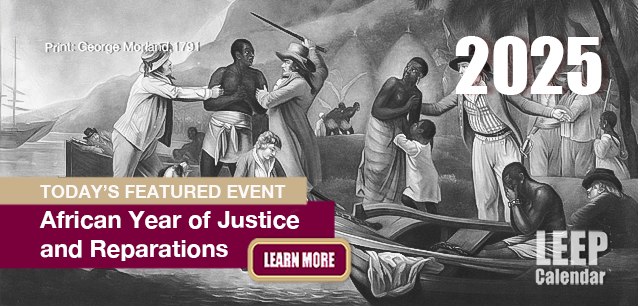 AD
AD
Country
- Africa
- Alcohol, Tobacco & Drugs
- Animals, Fish, Insects & Birds
- Anniversaries
- Australia
- Books
- Brazil & S.America
- Buddhism
Category
- Afghanistan, AF
- Aland Island, AX
- Albania, AL
- Algeria, DZ
- American, Samoa, AS
- Andarra, AD
- Angola, AO
- Anguilla, Al
Event Type
- Daily
- Weekly
- Annual
- Recurring
Duration
- All
- 1 Day
- 2 Day
- 3 Day
- 4 Day
- 5 Day
- 6 Day
Event Type
- Daily
- weekly
- Annual
- Recurring
Event Type
- Daily
- weekly
- Annual
- Recurring
Today is: October 25
Chhath Puja (H)
Climate Action Day, Youth
Drug Take Back Day, Ntl.
Make a Difference Day
Pasta Day, World (1995)
Pit Bull Appreciation Day, Ntl.
Punk for a Day, Day
Retrocession Day (TW)(1945)
Sourest Day
Southern Festival of Books (US-TN)
Vaquita Day, Intl. Save the
ACE Week
Adoption Week, Ntl. (UK)
Baking Week, Ntl. (UK)
Brain Tumor Awareness Week, Intl.
Digital Parenting Week (UK)
Disarmament Week, World
Estate Planning Awareness Week, Ntl.
Freedom of Speech Week
Heritage Week, Ntl., (JM)
High Point Market (US-NC)
Magic Week, Intl (1926)
Media and Information Literacy Week, Global
Origami Days, World (1898)
Prescription Errors Education Week
Red Bull Tuk Tuk Tournament (LK)
Red Ribbon Week (DEA)
Temperature Check Week, Ntl.
World Series MLB
ADHD Awareness Month
Adopt-a-Dog Month, (AHA)
Adopt-a-Shelter Dog Month
Alcohol Awareness Month, Collegiate Ntl.
Animal Safety and Protection Month, Ntl.
Antidepressant Death Awareness Month
Anxiety and Depression Awareness Month (AU)
Apple Month, Ntl.
Applejack Month
AquaTober
Architecture Month, Archtober
Arts and Humanities Month, Ntl.
Audiology Awareness Month, Ntl.
Autism Awareness Month (CA)
Bake and Decorate Month, Ntl.
Bat Appreciation Month
Battery Safety Month (Auto)
Bi-national Health Week (US/CA/MX-varies locally)
Big Draw, The
Bilingual Child Month, Celebrating the
Black History Month (UK)
Black Speculative Fiction Month
Bleeding Disorders Month, Ntl. (AU)
Blind Month, National Meet the
Blindness Awareness Month
Book Month, Ntl.
Breast Cancer Awareness Month, Ntl.
Bullying Month, Stop, Ntl.
Bullying Prevention Month, Ntl.
Caffeine Addiction Recovery Month
Car Care Month, Ntl. Fall
Caramel Month, Ntl.
Celiac Awareness Month (US)
Cheese Month, American
Cheshvan (J)
Chili Month, Ntl.
Chiropractic Health Month, Ntl.
Church Library Month
Church Safety and Security Month, Ntl.
Class Reunion Month
Clergy Appreciation Month
Co-op Advertising Awareness Month
Co-op Awareness Month
Company Culture Month, Global
Company Culture Month, Global
Computer Learning Month
Contact Lens Safety Month
Cookie Month
Corn Month
Country Ham Month
Country Music Month
Crime Prevention Month, Ntl.
Critical Illness Awareness Month
Cybersecurity Month, Ntl.
Danger Run (US-KY, IN, IL)
Dental Hygiene Month, Ntl.
Depression Education and Awareness Month
Dessert Month, Ntl.
Disability Employment Awareness Month
Diversity Awareness Month, Global
Domestic Violence Awareness Month
Down Syndrome Month, Ntl.
Dyslexia Awareness Month
Eat Better—Eat Together Month
Eczema Awareness Month
Emotional Intelligence Awareness Month
Energy Action Month, Ntl.
Ergonomics Month, Ntl.
Eye Injury Prevention Month
Fair Trade Month
Family History Month
Festival of Penha (BR-RJ)
Filipino American History Month (1587)
Financial Planning Month
Freethought, Month of, Ntl.
Gain the Inside Advantage Month, Ntl.
Gay and Lesbian History Month (1979)
German-American Heritage Month (1683)
Girls Night In (AU)
Go Sober Month (UK)
Golf Month, Australia
Great Cycle Challenge (AU)
Halloween Safety Month
Head Start Awareness Month
Health Literacy Month
Healthy Lung Month
Healthy Workplace Month (CA)
Hog-out Month (US-TX)
Home Eye Safety Month
Indigenous Peoples Month, Ntl. (PH)
Indoor Air Quality (IAQ) Month, Ntl.
Islamic History Month (CA)
Italian-American Heritage Month (1492)
Jumadal-Awwal (M)
Kartika (H)
Katik (S)
Kitchen and Bath Month, Ntl.
Learning Disabilities Month, Ntl. (CA/US)
Learning and Development Month, Ntl.
Liver Awareness Month, Ntl.
Long Term Care Planning Month
Lupus Awareness Month (UK)
Medical Librarians Month, Ntl.
Medicine Abuse Awareness, Ntl.
Menopause Month, World
Museums and Galleries Month (PH)
Muslim American Heritage Month (US)
Non-GMO Month, Ntl.
Organize Your Medical Information Month
Orthodontic Health Month, Ntl.
Pasta Month, Ntl.
Pedestrian Safety Month
Pescatarian Month, Ntl.
Pet Wellness Awareness Month, Ntl.
Pharmacist Month, American
Photographer Appreciation Month
Physical Therapy Month, Ntl.
Pickled Peppers Month
Pink Ribbon Breakfast (AU)
Pit Bull Awareness Month, Ntl.
Pituitary Awareness Month (UK)
Pizza Month, Ntl. (1984)
Polio Awareness Month, (CA/AU)
Polish-American Heritage Month
Popcorn Poppin' Month, Ntl.
Positive Attitude Month
Prenatal-onset GBS Disease Recognition Month
Pretzel Month, Ntl.
Principal's Month, Ntl.
Protect Your Hearing Month, Ntl.
Reading Group Month, Ntl. (1917)
Rett Syndrome Awareness Month
Roller Skating Month, Ntl.
STEM Mentoring Month
Sarcastic Awareness Month
Sausage Month, Ntl.
School Libraries Month, Intl.
Seafood Month
Senior's Month (AU-QLD)
Sensory Awareness Month, Ntl.
Shoctober - Defibrillator National Awareness Month (AU)
Spina Bifida Awareness Month, Ntl.
Spinach Lovers Month
Spinal Health Month, Ntl.
Squirrel Awareness and Appreciation Month
Stamp Collecting Month, Ntl
Stop America's Violence Everywhere (SAVE) Month
Substance Abuse Preservation Month, Ntl.
Sudden Infant Death Syndrome (SIDS) Awareness Month
Sunday School Teacher Appreciation Month
Teentober
Turner Prize Exhibition (UK)
U.S.-Mexico Border Health Month
Ultrasound Awareness Month
Unblocktober (UK)
Urban October
Vegetarian Month
Walk To School Month, Intl.
Wild About Gardens Week (UK)
Window Covering Safety Month, Ntl.
Winter Weather Preparedness Weeks (Varies by Location)
Wishbones for Pets (US/CA)
Women's History Month (CA)
Women's Small Business Month
Work and Family Month, Ntl.
Workplace Politics Awareness Month
Youth Justice Action Month, Ntl.
LEEP Calendar
Scroll to explore events active on this date.
LEEP INK FEATURES

August? Absolutely!
In August, we live through the Dog Days of Summer. It's hot and often humid, and those who can leave for better climates do. Down south, winter is in full force. August is also known as "the ...

In The Heat of July: July 2025 Events
Is it hot enough (or cold enough if you're below the equator) for you yet? There is actually a day for that! Like every month, I pick a diverse collection of events you may or may not know about. This ...

May Blooms: Events in May 2025
Along with October, May is one of the most densely packed months of the year. It's before the summer humidity and the last whole month of the school year. The weather is warming in t...
About National Workplace Development Month
Legal , Politics
United States
Ends: Sep 30, 2022
DESCRIPTION:
RESOLUTION
Designating September 2021 as “National Workforce Development Month”.
Whereas investment in the education, training, and career advancement of the workforce in the United States, known as “workforce development”, is crucial to the ability of the United States to compete in the global economy;
Whereas collaboration among Governors, local governments, State and local education, workforce, and human services agencies, community colleges, local businesses, employment service providers, community-based organizations, and workforce development boards provides for long-term, sustainable, and successful workforce development across traditional sectors and emerging industries;
Whereas jobs that require more than a high school diploma but not a 4-year degree comprise 52 percent of the labor market, but only 42 percent of workers in the United States have been able to access training at that level, creating a discrepancy that may limit growth in changing industries such as health care, manufacturing, and information technology;
Whereas 76 percent of business leaders say greater investment in skills training would help their businesses;
Whereas, as of summer 2021 in the United States—
(1) nearly 10,000,000 individuals are unemployed;
(2) unemployment rates for Black and Hispanic adults are well above the unemployment rates for White adults;
(3) workers without a bachelor’s degree are nearly 2 times more likely to be unemployed;
(4) more than 1⁄2 of the jobs lost due to the Coronavirus Disease 2019 (COVID–19) pandemic were by workers earning less than $40,000 per year; and
(5) according to a recent poll, nearly 1⁄2 of workers said they will need to learn new skills in the next year to do their jobs, while more than 1⁄2 said they would retrain for a career in a different field or industry if they had the opportunity.
VIDEOS
Currently, this event does not have supporting videos.
SUPPORTING DOCUMENTS
Currently, this event does not have supporting documents.
ADDITIONAL IMAGES
Currently, this event does not have supporting images.
Where would you like to go now?
 AD
AD
By using this site. You are agreeing to use of cookies. Learn more in our Privacy Policy
/footer-logo.svg)
LEGAL: Excerpts and links may be used, provided that full and clear attribution is given to Jubilee LLC and LEEPCalendar.com, with appropriate and specific direction to the original content (Page URL). Additional documents, embedded videos and additional image rights retained by their creators and are provided to increase understanding of the event or topic.
Jubilee LLC reserves the right to accept or reject inclusion of events in this calendar. The appearance of an event in LEEP Calendar does not imply endorsement of the event, nor the organization championing the event by Jubilee LLC, its stakeholders, customers or subsidiaries. All dates, contact information, URLs, addresses, and information relating to any event, promotion or holiday are subject to change without notice and should be treated as estimated. Jubilee LLC, our stakeholders, customers and subsidiaries cannot warrant accuracy. Users of this application are solely responsible for verifying actual event date with organizers and additional sources prior to committing resources, financial, human or otherwise.






































































